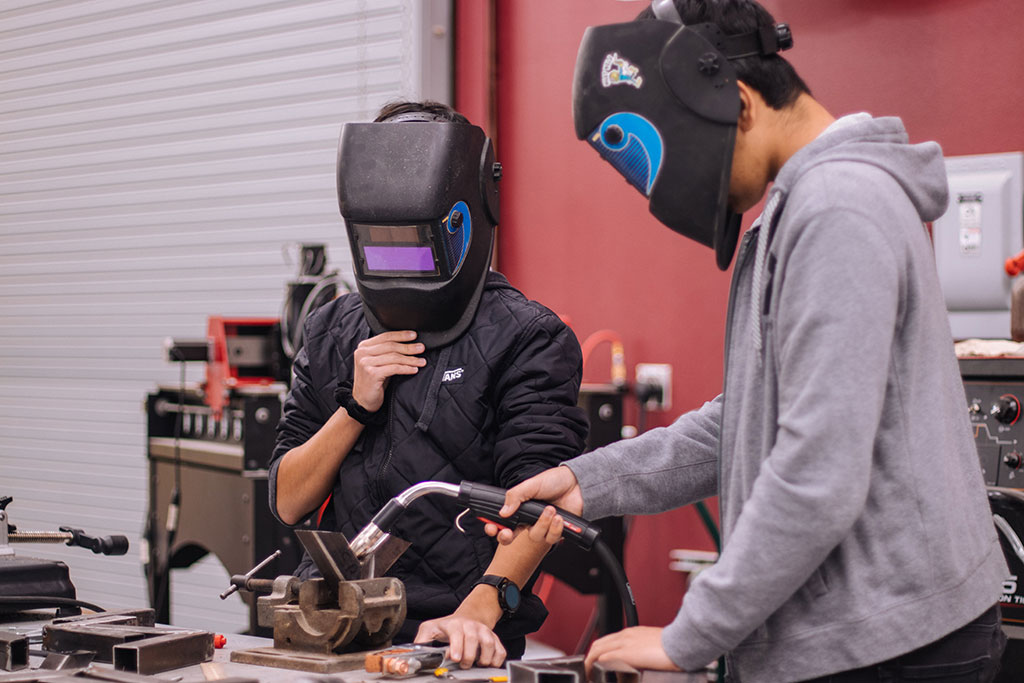Small businesses can be the bridge between education and employment

Photo by Jeswin Thomas
After decades of leading successful tech enterprises, Texas-based businessman Ken Barth has returned to school — but this time, he’s not there to be graded.
The tech entrepreneur who doubles as the chairman of Symphonic Source and CEO of Catalogic Software launched an advisory board that focuses on electing trustees committed to improving the Dallas school district, known as one of the country’s most economically disadvantaged education systems. He also leads a political action committee that raises money for TKTK.
Barth is just one of the dozens of business owners who’ve decided to give back to the community and elevate students, knowing they comprise the next generation of leaders and workers. “Education is the one constant that I’ve found to lift somebody out of poverty and bring them opportunity,” he said in a report published by the Global Business Coalition for Education.
The report found that small- and medium- sized enterprises (SMEs) have brought surprising quantifiable positive change to education. Interviews with dozens of SMEs across 18 countries reveal there’s a strong connection between small and midsize businesses and global education.
SME’s, for example, engage frequently with children and families within local communities. These connections foster the potential for local businesses to expose and prepare young people for the workplace and support community education, GBC-Education’s report shows.
W3 Indústria Metalúrgica Ltda, an industrial and office furniture company in Ponta Grossa, Brazil, provides the only after-school program for children in their part of town. Diego Polese, has been responsible for W3’s program since its inception 11 years ago.“There are no activities by the local government, there is no playground, there are no sports fields, nothing. There is no space for children in this community. Our program is all they have,” said Polese.
Small businesses have long played an active role in preparing the next generation for future employment. This entails supporting and advancing the development of knowledge and skills in young people. After all, they have a lot of stake in it: It’s good for their business and it’s good for their community.
Many business leaders understand that education can develop vital skills in young people that later become transferrable to the workforce. They know creating career options is one of the most effective ways to attract qualified people interested in their line of business. They also see firsthand that supporting students and young adults at home or abroad can motivate their staff and build office morale. SMEs also might simply want to give back to the communities that support them.
From a US sock retailer to a Nigerian household gas supplier to an Australian digital ticket broker, millions of small business leaders worldwide are offering training, mentoring, and support to young people in preparation for the next generation.
Take Terrence Southern, for example. Southern is the CEO of HarozTec, a Dallas-based robotics and artificial intelligence company, who as a kid had difficulties connecting and understanding what an engineer does because he had never met one in his inner Detroit community.
Now, as an adult and the head of a successful AI company, Southern is working to make sure students have a better experience than he did. Southern is providing curriculum and mentoring students in an early college high school program with the Dallas Independent School District’s Pathways in Technology (P-TECH) which started four years ago. The goal? To help students from underserved communities enter the AI and robotics fields.
“If I partner with the local school district, I’m able to be a mentor to the students that come from the community that I came from,” Southern said in an interview. “The likelihood of them meeting the CEO of HarozTec versus the CEO of a Fortune 100 company is much greater, and they can say, ‘Well, I know Mr. Southern.’”
Globally, small and medium enterprises have found innovative ways to support millions of children in their educational endeavors. These businesses have offered mentoring and tutoring services, in addition to scholarships, financial backing for afterschool programs, and pro bono support.
The message for small business leaders is clear: regardless of the size of your business, you can have a big impact in education. As schools start to reopen, students and parents deserve the support of everyone in their community. Businesses can help local schools during this critical period and also make important bridges between work and the community, including employment pathways for the next generation.
Small steps can lead to a big impact. From connecting with local chamber of commerce members, Rotary Clubs, school districts, or individual schools and assess the local needs, there are bound to be ways for small businesses to help support the community. If interested in going global, linking up with a reputable education nonprofit with a strong track record is a good way forward. And most importantly, other businesses are already involved in education projects. Tapping into business partners, suppliers or clients may yield natural pathways for collaboration and strengthening of efforts.
No matter how big or small business, all businesses have something to contribute, across all sectors and in all corners of the globe. If more businesses like yours decide to support the right to a quality and inclusive education for every child, together we can unlock big change.
By Justin van Fleet, Executive Director of the Global Business Coalition for Education
